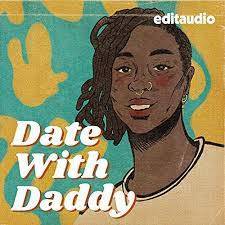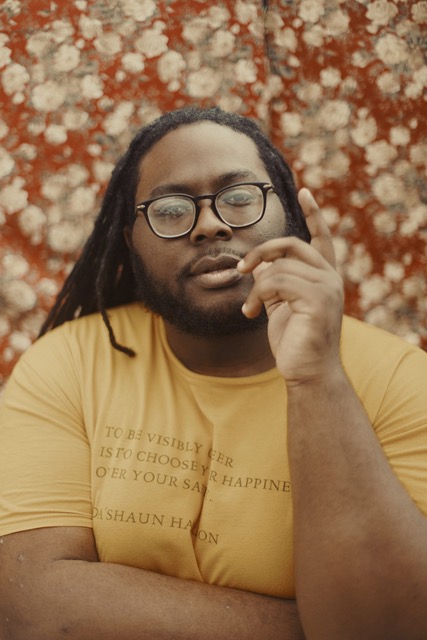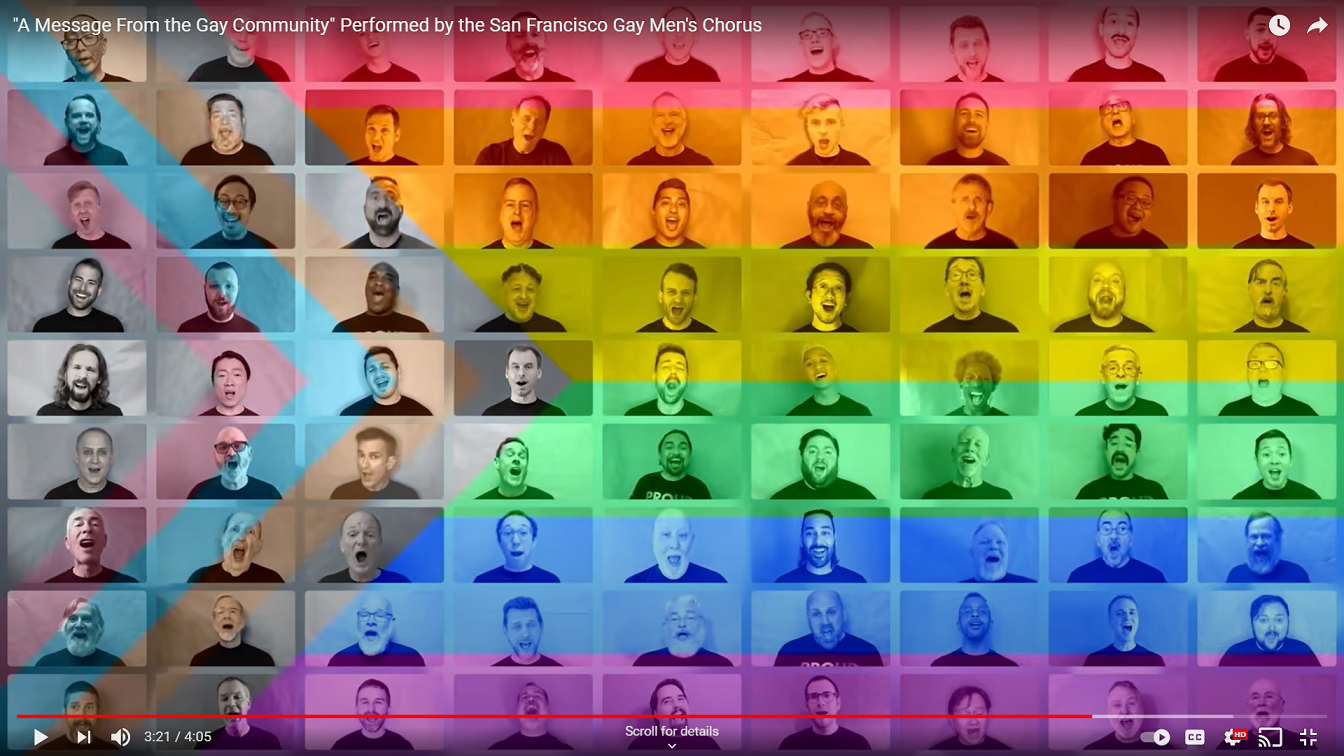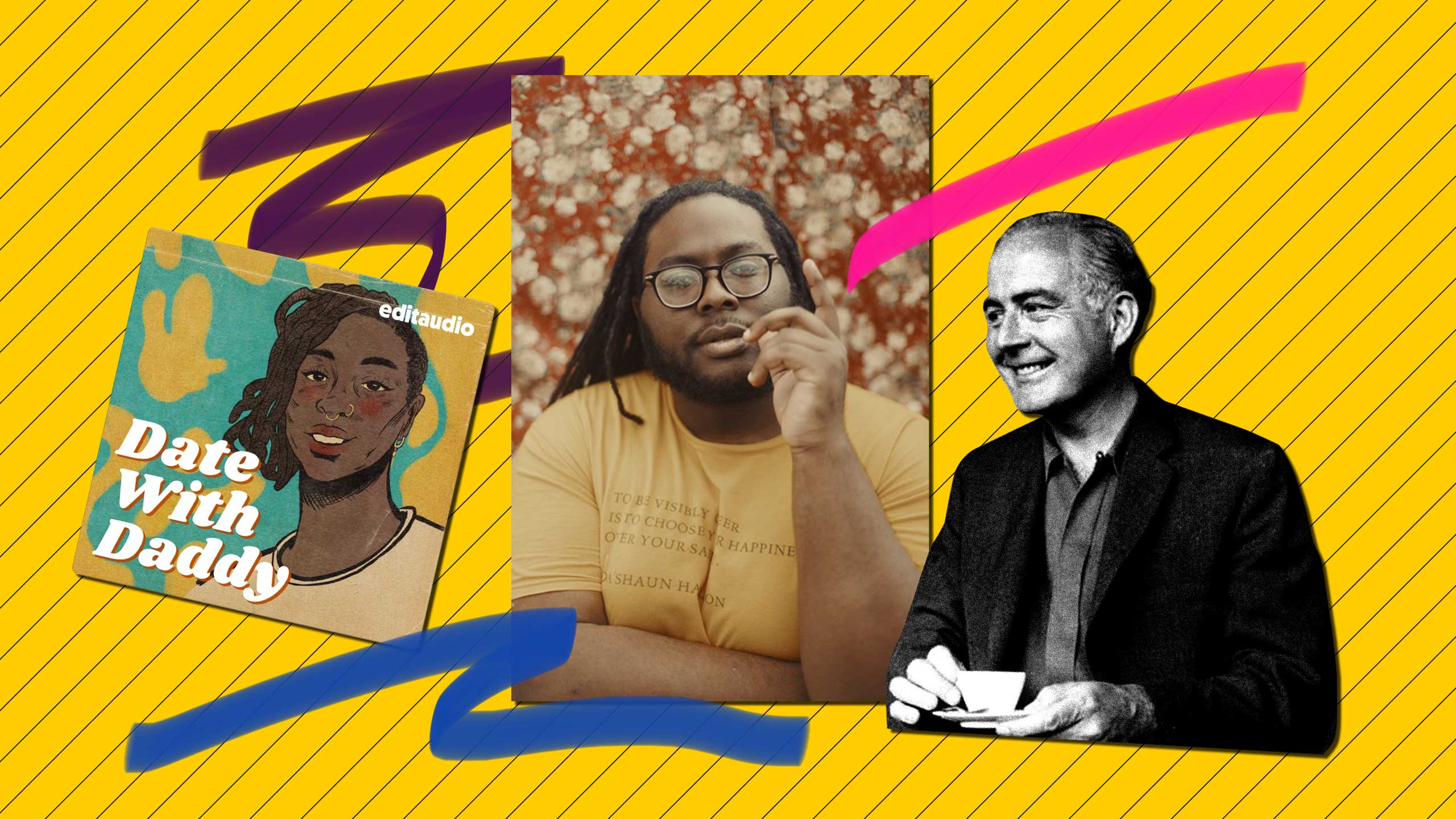Well, my dearest loves and lovelies, the truth is that we have arrived at the most stultifying part of summer and your resident queer culture nerd finds himself tired, tired, tired. In need of a pick-me-up or 12, and having given up alcohol for theatre some years ago, this week I am reaching for the whimsical, the playful and the soothing. If your mood this week is more “serious highbrow artistic,” sip your artisanal, sustainably-harvested Assam and skip to the last item. For the rest of you less-fancy Nancys, follow me.
Date With Daddy podcast

Handsome Canadian event producer and podcaster Marisa Grant spends their work time creating fun and sexy events for Black queer women and trans people in Toronto, including Strapped, where queer folks of colour take space and fill it with Black-centred queer joy. Grant’s pandemic project seems to have been the steamy, explicit podcast Date With Daddy, an interactive theatrical experience—quite like an old-time radio play—where Daddy draws you in deeper with questions to connect and explore (and leave you longing to… connect, in person).
Trans Bodies, Two Ways: Belly of the Beast and How We Do Family

Da’Shaun Harrison and Trystan Reese are both ready to tell you things—intimate, difficult, joyful, revelatory, profoundly truthful things—about their experiences of being embodied in the world. They are things you definitely, absolutely want to read. In Belly of the Beast, Harrison challenges the reader to grapple with assumptions and prejudices about fatness, Blackness, gender, work, worth, desire and more in a book that holds and pushes its audience at the same time (a little like being dangled off a cliff by an artistic giant). In Reese’s How We Do Family, the vibe is much more comforting; it’s enjoyably cozy, with a tone that’s well-tuned to soothe the curious straight and cisgender looky-loos of the world into the idea of a queer family created through adoption and Reese’s pregnancy as a transgender man.
Future of Film Showcase: Queer Picks
Future of Film Showcase (FOFS) presents shorts from Canadians 40 and under, and this lucky year (cinematically speaking), a full quarter of the 12 films selected have LGBTQ2S+ themes. Because of the pandemic, FOFS is fully virtual and streaming for free on the CBC Gem app, which means you, dear reader, get to watch a selection of fully realized queer and trans shorts. I especially loved Kortney Jackson’s Wash Day, which allows the viewer an intimate portrait of three Black women talking about and tending to their hair, including Eve Adrienne, a Black trans woman who packs a lot into three minutes on film (follow it up by reading her photo essay from a different project). Callahan Bracken joins the showcase with My Head Aches When I Look Too Long, a rough and evocative animation that explores what it’s like to be a queer teen today, grappling with self and representation, what we hide and what we display. There’s something about his purposefully disobedient line in this short film that makes me love it so much more than a clean and perfected version of this artwork.
“A Message From the Gay Community” by the San Francisco Gay Men’s Chorus

The San Francisco Gay Men’s Chorus started a tempest in a YouTube pot last week, posting a video of their new original song “A Message From the Gay Community,” a take on the oft-repeated, consistently debunked myth that gay people are recruiting children into gayness (nefariously, not just by making it look cute). The song’s lyrics promise to teach children to be kind and accepting—quelle horreur. But of course, some of the homophobes who professionally make everything queer sound terrifying are out and making a big heterosexual stink about this sweet, cheeky tune (but, uh, don’t read the YouTube comments. Yikes.)
Hanne Blank’s Reasons Not To Quit and Tangerine Jones’ Nightly Reminders
I always need more femme wisdom in my life, and most of the time I bookend my days with brilliant frames from two women who have the great gift of the queer summary; they are one of the most consistently helpful things on Beyoncé’s internet. Femme heartthrob Hanne Blank has restarted her “Reasons Not to Quit” daily Twitter series; every morning, the queer midwestern polymath posts one good reason not to quit, which is always a mix of sweet and salty (“Reasons Not to Quit #1258: It’s always possible that you’ve overlooked something. You know, like your own inherent worth as a human being. Weird how easy it is to do that, huh?”).
Over on Facebook, Tangerine Jones finishes each day with an encouraging reminder about your worth, your work or your wellness, like “This is your nightly reminder that celebration of the accomplishments and resistance of your people can not be contained to one month. Celebrate by the minute, hour, day and week, loves.” Jones, a New York-based writer and performance artist, put forth the idea of Ragebaking as a way for people to to “cope, connect and channel their fury,” about racial injustice in general and misogynoir in particular. Her love-and-butter Nightly Reminders are a digital version of New York kindness: bracing, sincere, and available to those who make the effort.
ICYMI

Gay American composer Samuel Barber, whose partner was the composer Gian Carlo Menotti, was perhaps most famous for his Adagio for Strings, an expanded arrangement of an earlier work that celebrated conductor Arturo Toscanini. (Fun fact: my great-aunt was a member of Toscanini’s workshop choir, singing through newly arranged vocal pieces.) Adagio is an early contemporary work that always feels queer to me—there’s a mix of longing and satisfaction, a queer exuberance that catches me right in the feelings place. I recently found this pandemic performance of Adagio for Strings by 278 cellists playing from home, and I think perhaps you will also be glad to have found it.
And on that queer and exuberant note, dearest muffins and poundcakes and pudding pops both dairy and vegan, I leave you for vacation, during which I will attempt to read all the books and eat all the baked goods that I rarely have time for in my busy, workaday life.
Until next time, I hope your days are full of butter and vivid exposition, that your chocolate tempers perfectly and your main characters behave themselves… well enough. If you’re making something new and queer, email info@xtramagazine.com or DM me on Twitter with your news, I love to hear from you.


 Why you can trust Xtra
Why you can trust Xtra


